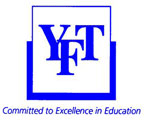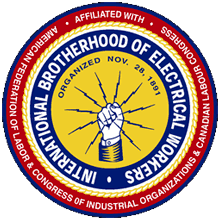Yonkers Federation of Teachers Wins Arbitration Ruling
 November 6, 2012
November 6, 2012
By Marc Bussanich
The Yonkers Federation of Teachers recently won an arbitration ruling when the Yonkers Board of Education unilaterally took action that altered the terms of employment. From the onset of contract negotiations between the YFT and BOE over 40 years ago, retirees have not had to pay for health care benefits. But teachers who retired in the last three school years were informed by the district they would have to start paying, forcing an arbitration ruling between the union and the district.
The amount the district expected the retirees to pay was not exorbitant, but the union filed for arbitration because the district did not negotiate first with the YFT.
According to Florence McCue, a grievance chair for the YFT and an attorney, the basis for the arbitration filing stems from contract negotiations in 2006, the last contract reached between the union and the district. The district repeatedly assured the union during the talks that retirees would not have to contribute in order to receive their health care benefits.
The union considered, and then agreed for the first time, after the district’s assurances, to allow in-service teachers to pay for their coverage so that retirees would not have to pay because they no longer receive full salary. Despite the district’s promises, it reneged on its pledge not to compel retirees to pay for coverage.
“In the third year of the contract, retiring teachers received a letter one month before the school year’s completion informing them they would have to now contribute towards their health care, and that the money would be deducted from their pensions,” said McCue.
The district’s unilateral decision affected teachers retiring from the system in June, 2010 through the 2012-2013 school years.
When the union agreed to in-service teachers paying a share of their health care costs, the district was supposed to offset the teachers’ contributions with an extra salary increment, or step, but the district also reneged on that provision.
The union and the district went to arbitration on that matter and the arbitrator ruled that the district indeed owed the teachers the extra step, which they received in the form of back pay.
McCue noted it’s not unusual for the district to pull unilateral shenanigans. But the district apparently saw an opportunity because although the district insisted it would not compel retirees to pay for their benefits, that language was not explicitly stated in the contract.
“The district justified their action by arguing that ‘retirees’ are not mentioned in the recognition clause of the contract, and are therefore subject to pay. But retirees are YFT members by virtue of continuing to pay union dues in retirement,” McCue said.
“The district cannot change the terms and conditions of employment without negotiating. Health insurance is a future benefit that teachers earned during service.”
She acknowledged that at face value the district’s argument was reasonable, as retirees are not explicitly prohibited from or bound to contributing to health care coverage. But McCue argued before the arbitrator that retirees have not had to pay over the 40 years the union has been negotiating with the district.
Then a fortuitous coincidence strengthened McCue’s argument. The district had apparently unilaterally acted to also require retirees represented by the Civil Service Employees Union unit to pay for their health care benefits.
In turn, CSEA filed an unfair labor practice with the Public Employment Relations Board and the administrative law judge ruled in favor of the union. The district was ordered by PERB to reimburse the CSEA members for any health care deductions.
It seemed to be an open-and-shut case for the YFT, but the arbitrator was not obligated to follow the doctrine of “stare decisis” (the obligation to honor past precedents or precedents of higher courts).
“I went into the arbitration hearing with the PERB decision believing we’d easily win, but an arbitrator is not bound by it; he or she is allowed to make their own decision. Although the facts were very similar, the parties were different entities and therefore a true stare decisis argument might not apply,” McCue said.
The Yonkers Board of Education often requested adjournments of the arbitration hearings. McCue believes they purposely did that to potentially argue that they did not have the finances to restore back pay should the arbitrator rule against them in the hearing. She also believed the district stalled because it was awaiting the PERB decision.
But in September, the arbitrator, Roger Maher, ruled in the YFT’s favor.
“The arbitrator cited the more than 40-year history of no retiree health care contributions. Although he didn’t say in his opinion that the YFT affirmatively represents retirees, the union certainly represents the future benefit for in-service teachers. The district was instructed to end the pension deductions, reimburse the retirees and negotiate with the union before requiring premium portion from retirees,” said McCue.



